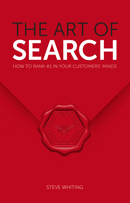

The Secret of a Perfect Rise
This week Marmite hit the headlines as the hero brand and poster child for the post-Brexit fallout between Tesco and Unilever. Love it or hate it, Marmite has proven itself to be a by product that makes for an incredibly strong metaphor.
Commenting in a Guardian article[1] an independent analyst stated that, far from being bad for business, Tesco & Unilever's public spat over pricing was probably a good thing (regardless of whether it was phoney or genuine) as it showed the UK's largest discount retailer[2] fighting over price on behalf of the consumer.
Marmite's a by-product
The main component of Marmite is yeast extract, originally a by-product from the brewing of Bass beer in Burton. The salty spread has entered the English vernacular as a metaphor for something that is an acquired taste or a thing that polarises opinion - this has come about thanks solely to beautiful, intelligent product marketing and brand positioning.
The messaging for the Marmite brand developed from the early 1900s upon the product's health benefits as Marmite was found to be a rich source of the vitamin B complex; Marmite found its way onto the frontlines during World War One to combat beri-beri and has since been used in the treatment of anaemia and malnutrition. I never ate Marmite as a child because Mum doesn't like it and so I became aware of its existence through TV advertising; for me Marmite was The growing-up spread you never grow out of.
Since Unilever acquired Marmite in 2000 the messaging for the brand message has, thankfully, evolved from the cutesy to the down-right assertive, take-it-or-leave-it You either love it or hate it
.
Not bad for something that's made from manufacturing waste but Marmite is far from unique. Australians have their own version of Marmite named Vegemite, the Swiss have Cenovis and the Germans have Vitam-R but the absence of uniqueness that I refer to doesn't relate to the yeast base ingredient but the brand's ability to divide opinion into one of two camps.
Marmite is not alone in being an incredibly strong and useful by-product that people either love or hate.
Google's by-product that'll help your website rise
Love it or hate the thought of it, regular analysis of your website's activity is the secret that will help you to understand how your website is performing in its rise to a #1 rank. Google Analytics, like Marmite, polarises opinion - people do indeed either love Analytics or hate them. Me, I'm in the love camp.
The yeast of the Web
Google's mission is to organise the world's information and make it universally accessible and useful. The primary 'thing' that Google manufactures is hyperlinks to websites in response to search queries, the digital by-product of this manufacturing process is data. This data's not discarded as it's refined and presented as Google's Marmite, the Analytics product suite that has become the digital yeast of the Web.
Take it or leave it; use it, don't use it; whether you love it or hate it, you can't argue with it.
The data by-product of Google's robotic crawls is presented to you as powerfully insightful statistics - what you make of this crucial ingredient is up to you. When you install Google Analytics into your website you're not just lifting your skirts to Google and giving the business exclusive insight into how busy your website is, you're being given access to a powerful rising agent in business. Incorporate this digital yeast into your marketing mix and you'll see the organic rise. Work with the ingredient over time, refine your recipe, prove it over time then, once you realise that what Google's actually trying to tell you through Analytics' insight is how to improve your own website - for free - then turn the heat up and create your own superbrand.

 Your website's rise to a #1 Google rank
Your website's rise to a #1 Google rank SEO supremacy: Logging 243 #1 Google ranks
SEO supremacy: Logging 243 #1 Google ranks

